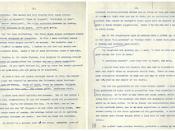Youth crime has been present within society for many years. Generalised complaints about juvenile delinquency in the UK have been charted as far back as the seventeenth century, although modern forms of complaint did not surface until early in the nineteenth century. It is now estimated that roughly one quarter of all crime today is committed by people aged between ten and seventeen . There is no single reason that can explain why young people break the law and it is necessary to look at a number of possible explanations such as family life, the influence of peers, intelligence and attainment and drug misuse. It is important to establish the value of these factors if the above question is to be answered.
While there are many reasons for youth crime, one of the most important factors is considered to be the environment in which the child is brought up. Home life is the most commonly highlighted aspect of research into this subject, which suggests that children from disrupted homes with little supervision are more likely to enter into criminal acts in later life.
Wilson found that "the most important correlate of conviction, caution and self reported delinquency was lax parental supervision at age ten" and the Oxford Handbook of Criminology claims that "family disruption or dysfunction is one of the few 'factors' that appears with regularity in much of the theorising about delinquency" . Conflict between parents and in particular divorce or separation, especially during childrens' early years (birth to four years old) is thought to increase chances of delinquency, although after the age of ten it is not thought to be anywhere near as significant . Also, it should be noted that lone parent families, particularly in cases where the mother is still in her teens at birth, are...


